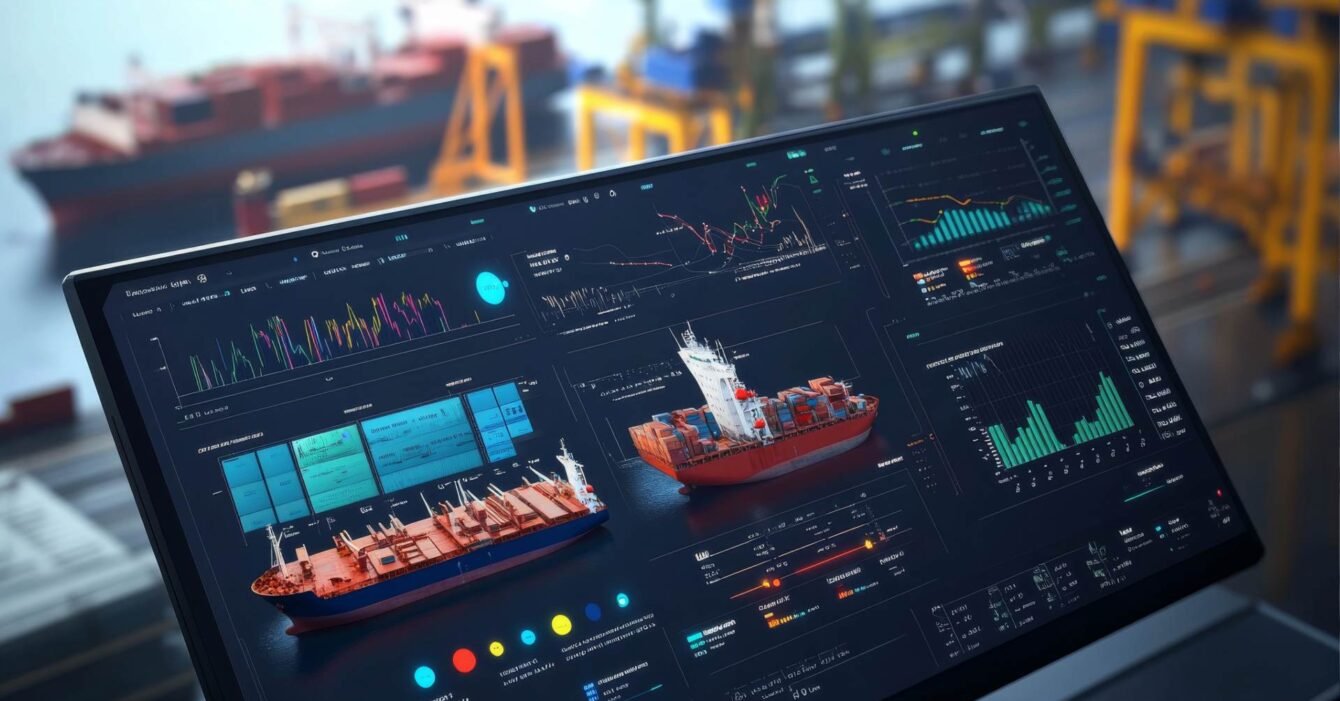How Data-Driven Logistics is Transforming the Saudi Supply Chain
In Saudi Arabia, logistics companies are increasingly adopting data-driven logistics solutions to streamline operations, reduce costs, and improve overall efficiency. With the country’s focus on digital transformation under Vision 2030, big data and analytics are now critical tools for logistics managers seeking real-time insights into inventory, fleet management, and delivery optimization. By leveraging data analytics, Saudi businesses can make more informed decisions, minimize operational disruptions, and enhance customer satisfaction.
Optimizing Inventory with Predictive Analytics
One of the most impactful benefits of data-driven logistics is predictive analytics, which allows companies to better manage inventory levels based on demand forecasting and historical data. Predictive models analyze trends to help logistics companies anticipate peak demand periods, ensuring that stocks are adequately managed and timely replenished. Companies that adopt these tools report significant reductions in stockouts and overstock issues, leading to improved inventory turnover and a more streamlined supply chain.
In Saudi Arabia, the integration of predictive analytics is particularly crucial in sectors such as retail and manufacturing, where demand can vary dramatically. For example, with investments in mega projects like NEOM and the Red Sea Development, real-time data from connected supply chain networks enables companies to meet high demands efficiently. This capability not only minimizes storage costs but also maximizes customer satisfaction by ensuring that products are always available when needed.
Enhancing Fleet Efficiency with AI-Powered Route Optimization
Another key benefit of data-driven logistics is the optimization of delivery routes using AI-powered tools. AI algorithms can analyze traffic patterns, weather conditions, and road closures in real time, enabling companies to optimize routes for faster deliveries. Saudi Post, for example, has reported a 30% reduction in delivery times by implementing data-driven AI route optimization. This improvement not only saves fuel costs but also enhances service reliability, a crucial advantage in a logistics-heavy economy like Saudi Arabia’s.
Route optimization tools are particularly valuable in large urban centers and remote areas of Saudi Arabia, where delivery times can be challenging due to traffic congestion or long travel distances. By optimizing routes dynamically, logistics companies can ensure on-time deliveries, improve fuel efficiency, and reduce the environmental impact of their operations. This proactive approach to fleet management is a key driver for sustainability in Saudi Arabia’s logistics sector, aligning well with the country’s broader sustainability goals.
Real-Time Data for Enhanced Decision-Making
Real-time data collection and analysis provide logistics managers in Saudi Arabia with immediate insights into various aspects of their operations, from warehouse status to fleet locations. By using IoT sensors and data analytics platforms, companies can track the exact position and status of assets in transit, identify potential delays, and proactively manage any disruptions. This data-driven approach enables faster decision-making and more responsive service, which is especially critical in sectors like e-commerce, where customers expect rapid delivery.
For instance, in inventory management, real-time data enables logistics teams to monitor stock levels and automate reordering processes to ensure a continuous flow of goods. In fleet management, tracking devices and sensors provide up-to-the-minute information on vehicle health and driver performance, which helps companies ensure timely maintenance and improve driver safety. Real-time analytics thus become an invaluable tool, allowing companies to avoid delays, reduce operational risks, and maintain high levels of service.
The Future of Data-Driven Logistics in Saudi Arabia
With Saudi Arabia’s big data market projected to grow significantly over the coming years, data-driven logistics is expected to become even more integral to the nation’s supply chain. As businesses increasingly adopt AI and analytics, these technologies will facilitate new levels of efficiency in the logistics sector. Enhanced data capabilities will allow for even more precise demand forecasting, optimized inventory management, and advanced fleet monitoring, creating a supply chain that is both responsive and resilient.
In conclusion, data-driven logistics is transforming Saudi Arabia’s logistics landscape, providing companies with tools to optimize operations, reduce costs, and meet rising consumer expectations. As the country continues to pursue its Vision 2030 objectives, embracing big data and analytics in logistics will be essential for businesses aiming to stay competitive in an evolving digital economy.




